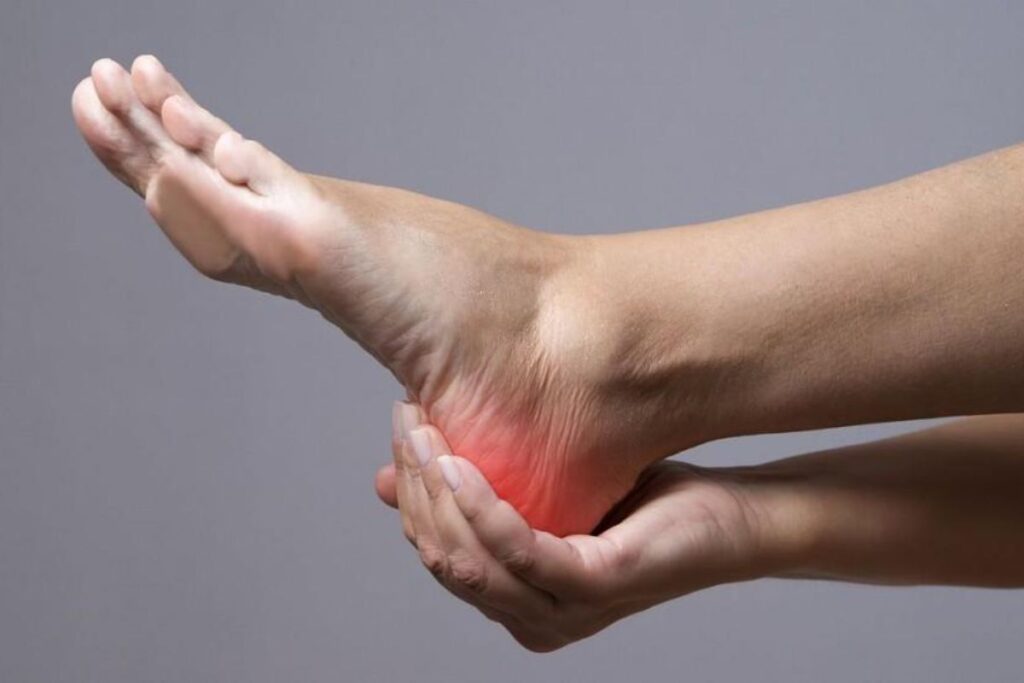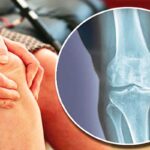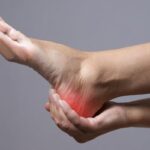
Heel pain is a common complaint, and when it occurs at the back of the heel, it can be particularly troubling. This type of pain can affect your mobility, making it difficult to walk or engage in regular activities. While heel pain is often associated with conditions like plantar fasciitis, pain in the back of the heel has its own set of causes and treatments. Understanding why the back of your heel hurts is the first step toward finding effective solutions. Dr. Ashish Suryawanshi, the best orthopedic doctor in Pune, provides expert care and treatment for heel pain, offering a range of options for relief. Let’s explore the potential causes of heel pain, treatment solutions, and when to seek medical attention.
What is Back Heel Pain?
Back heel pain refers to discomfort, tenderness, or aching at the posterior (back) portion of the heel. This type of pain can be caused by inflammation, strain, or injury to various structures of the heel, such as the Achilles tendon, heel pad, or surrounding muscles. The pain may develop gradually or occur suddenly, often making it difficult to walk or stand for prolonged periods. In some cases, back heel pain can be a symptom of a more serious underlying condition. It is essential to recognize the nature of the pain and seek appropriate treatment to avoid further complications.
Typical Reasons for Heel Pain at the Back
Achilles Tendonitis: The Achilles tendon is the large tendon that connects the calf muscles to the back of the heel. Overuse or repetitive strain on the tendon can lead to Achilles tendonitis, causing inflammation, swelling, and pain in the back of the heel. This condition is often seen in athletes who engage in running, jumping, or high-impact sports.
Achilles Tendon Rupture: A complete or partial rupture of the Achilles tendon can cause severe pain in the back of the heel. This injury often occurs suddenly, during physical activities such as running or jumping, and may require surgical intervention to repair.
Heel Bursitis: Bursitis refers to the inflammation of the fluid-filled sacs (bursae) that cushion the joints. When the bursa at the back of the heel becomes inflamed due to repetitive movement or pressure, it can cause heel pain, often accompanied by swelling and tenderness.
Sever’s Disease: Common in children and adolescents, Sever’s disease is a condition that affects the growth plate in the heel, causing pain and discomfort. It typically occurs in active children who participate in sports and activities that involve running or jumping.
Haglund’s Deformity: This condition, also known as “pump bump,” involves the formation of a bony protrusion at the back of the heel, often aggravated by tight shoes. The bony growth can lead to irritation and pain in the heel area.
Treatment Options for Heel Pain
Heel pain treatment varies based on its underlying cause. In many cases, conservative treatment methods can provide relief. Here are some of the most effective treatment options for back heel pain:
Rest and Ice: Giving your heel time to rest and applying ice to reduce inflammation is often the first step in treating heel pain. This can aid in reducing swelling and easing discomfort.
Stretching and strengthening the Achilles tendon and calf muscles can reduce tension and help prevent future injuries.
Strengthening exercises can also improve the support for the tendon and reduce strain on the heel.
Orthotic Insoles: Custom-made or over-the-counter orthotic insoles can help redistribute pressure on the foot and provide additional cushioning to reduce stress on the heel.
Anti-inflammatory Medications: Over-the-counter nonsteroidal anti-inflammatory drugs (NSAIDs) can help reduce pain and swelling associated with heel pain. In more advanced cases, corticosteroid injections may be suggested to offer temporary relief from inflammation.
Physical Therapy: A physical therapist can guide patients through a tailored exercise program to strengthen the muscles around the heel, improve flexibility, and reduce pain.
When to See a Specialist
While many cases of heel pain can be managed with conservative treatments, it’s important to see a specialist if the pain persists, worsens, or if you experience any of the following:
- Intense pain or swelling that doesn’t subside with rest or over-the-counter remedies.
- Trouble walking or standing because of heel pain.
- Pain that radiates up the calf or into the foot.
- A noticeable change in the shape or appearance of the heel, such as a bony bump or swelling.
- Symptoms that significantly impact your daily activities or quality of life.
If you experience any of these symptoms, it’s essential to seek expert care from a specialist like Dr. Ashish Suryawanshi. A proper diagnosis is key to determining the right course of treatment and avoiding long-term complications.
Choosing the Right Doctor for Heel Pain Treatment
Choosing the right orthopedic doctor for heel pain treatment is crucial for successful management and recovery. Dr. Ashish Suryawanshi, one of the best orthopedic surgeons in Pune, is highly regarded for his expertise in diagnosing and treating various foot and heel conditions. With his extensive experience and dedication to offering personalized care, Dr. Suryawanshi ensures that each patient receives the best possible treatment for their condition. His clinics in Nigdi and Thergaon, Pune, offer comprehensive care for patients suffering from heel pain, providing both non-surgical and surgical treatment options.
Summary
Back heel pain can be caused by a variety of factors, including Achilles tendonitis, bursitis, and Sever’s disease. Treatment options vary depending on the severity and cause of the pain, ranging from rest and stretching exercises to surgical interventions. If you experience persistent or severe heel pain, it’s important to consult with Dr. Ashish Suryawanshi, the best orthopedic doctor in Pune, to receive an accurate diagnosis and appropriate treatment plan. Dr. Suryawanshi’s clinics in Nigdi and Thergaon, Pune, provide expert care for heel pain, ensuring that patients receive the best possible solutions to restore mobility and relieve discomfort.




